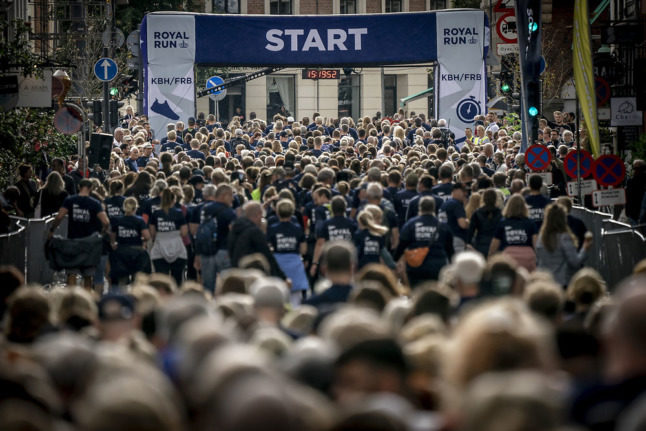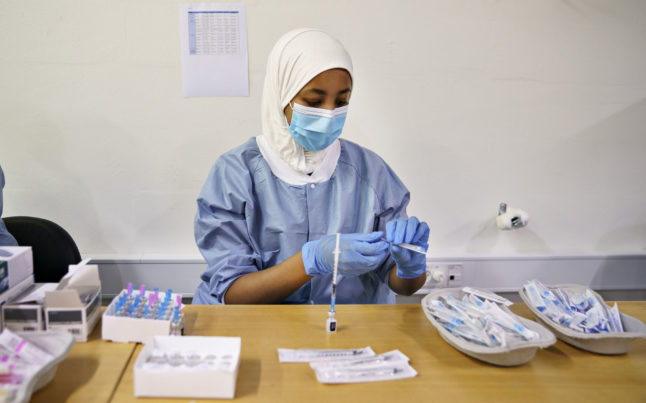Health authorities have worked throughout the summer to reach a stated target of vaccinating 90 percent of everyone who is eligible for a Covid-19 vaccine – broadly meaning people aged 12 and over – by October 1st.
The target was first pronounced by Danish Health Authority director Søren Brostrøm in August.
As of Wednesday, 87 percent of people in that group had received at least one dose of a vaccine. That means Denmark is about 150,000 vaccinated individuals short of reaching its target, according to calculations by national broadcaster DR.
But the country has nevertheless achieved a good level of protection against the pandemic through its vaccination programme, according to experts who spoke to DR.
“Whether we get to 87 or 90 percent does not mean so much. We are now as close to having herd immunity in society as we can be, and infection rates and hospitalisation numbers are also showing this,” said infectious immunology professor Jan Pravsgaard Christensen of the University of Copenhagen.
On Thursday, 427 new infections with the coronavirus were registered nationally from 38,089 PCR tests, giving a positivity rate of 1.12 percent. A total of 93 people are currently hospitalised with Covid-19 nationally.
The figures are broadly in keeping with trends seen throughout September. The reproduction rate or R number for Covid-19 was updated to 1.1 earlier this week, showing an uptick after being at 0.7 earlier in September.
With national vaccination levels close to the 90 percent target, Christensen said that “pockets” of susceptibility to Covid-19, for example at schools or housing areas with low vaccination rates – should be closely monitored for outbreaks.
“There are six or seven municipalities in the western suburbs of Copenhagen with lower vaccination levels than the average. They have worse herd immunity than the rest of society and that will mean more infections in those areas,” he said.
“Although that will not necessarily result in more hospitalisations, the risk is still there if there are elderly or vulnerable people,” the professor added.
Another expert suggested an effort should be made to encourage remaining unvaccinated people over the age of 50 to get a Covid-19 jab.
A “significant” epidemic can be expected during the autumn but without as many hospitalisations and deaths as in previous waves, professor Lone Simonsen, who leads Roskilde University’s PandemiX centre, told DR.
“If the aim is to prevent serious illness, we should focus efforts more on all unvaccinated people over the age of 50. They are at the highest risk of developing serious illness due to coronavirus infection during the winter and it would therefore be in society’s and their own best interests to get vaccinated,” Simonsen said.
According to the State Serum Institute, 95 percent of over 50s in Denmark are vaccinated, meaning 120,000 have not received a jab.
READ ALSO: Denmark to offer Covid-19 booster jab to Johnson & Johnson vaccinated



 Please whitelist us to continue reading.
Please whitelist us to continue reading.
Member comments